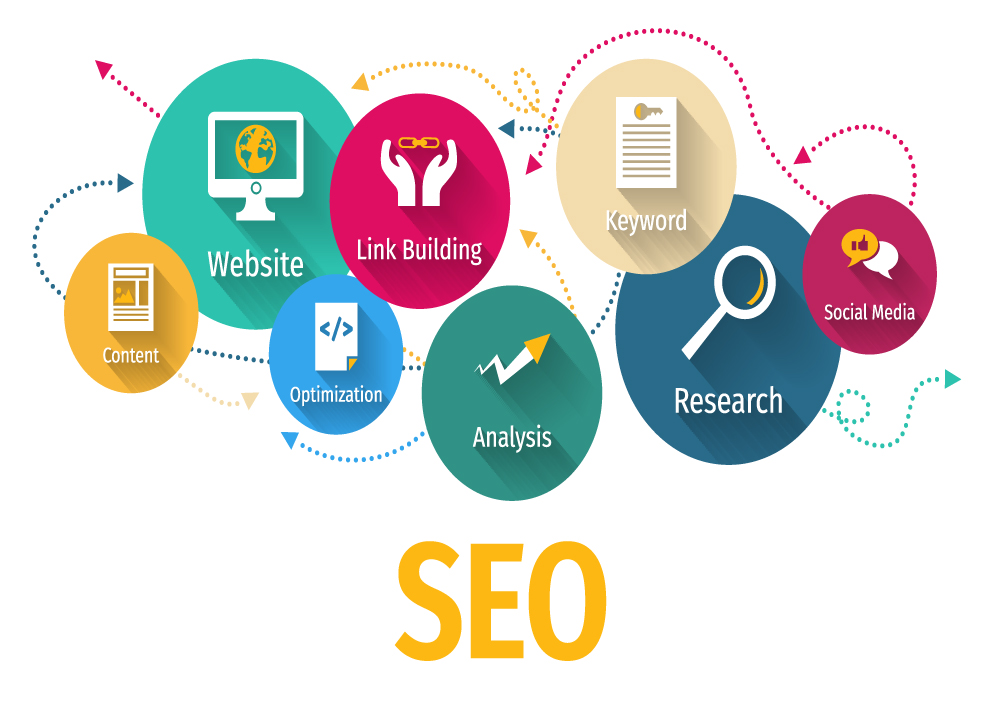 Search Engine Optimization. You’ve likely heard this buzz term around websites and developers many times, but is it always carefully explained? And more
Search Engine Optimization. You’ve likely heard this buzz term around websites and developers many times, but is it always carefully explained? And more
importantly, is it explained in relation to your desired end result?
This article is intended to outline some very important key elements of SEO to consider when developing your website. Of course, choose a developer who will walk you through this as a part of the process 😁
And while SEO is very important, and should never be neglected, it’s important to understand, from an expectation standpoint, that SEO will never guarantee you positioning on a search engine results screen. Period. These organic results are defined by Google; your target may get you close, and you might stay at or near the top for a while, depending on a lot (!) of variables.
For most companies, optimization keeps you relevant and ensures you are being properly indexed by Google. However, if you want to ensure qualified leads and conversions to your website, you may want to consider adding a professionally optimized and managed Search Engine Marketing campaign.
For now, let’s get started…

Defining Terms
SEO (Search Engine Optimization) is one of the most integral aspects of website design. Essentially, SEO is the intentional work you put into a website with the goal that the site appears as close to the top spot as possible on search engines – all while managing expectations and understanding that SEO never guarantees positioning. SEO is multi-faceted, and requires the work of someone knowledgeable and experienced with this work, with professional analytic writing, and your website build.
Conversions occur when site visitors complete the goal you have for them, whether that means they purchase something, subscribe to a newsletter, contact you, etc. If your goal is to generate more phone calls to your business from your site, every call you get as a result of something on your site is a conversion.
Keywords are a topic that seems pretty straightforward, but not many people leverage it well (don’t get us started on “keyword stuffing”). In a nutshell, keywords are search terms people use to find things on search engines. Your site needs to collect and present the right kinds of keywords in natural ways.
Know Your Clients/Site Visitors
Keyword research is when you determine the most appropriate keywords for your site based on your industry, conversion goals, service area, and much more. We’ll talk more about the importance of keywords in another post.
There are (at least) two important questions you need to ask yourself: Why do/should people visit your site? What are their goals when going to your site? Once you are able to answer these questions, the real work (and fun!) can begin.
When you know why people do/should visit your site, and what their goals are while on your site, you can ask yourself: How does your website accomplish those goals for clients/site visitors? What does your site need to look like and do (in terms of functionality) to help site visitors achieve those goals?
Content Quality & Production
Determining what your webpage and/or post content is and should be, is directly related to your keyword research and the why/what/how questions we’ve discussed. You funnel the information learned with those tools into content! What kind of content best displays everything you’ve learned? Personal or business blog? Video? Resource hub? A new page with good, detailed, reliable info for visitors? That last one is most likely the most straightforward.
Moving forward with your commitment to SEO and conversions, your regular content production involves two goals: improving existing content and producing great new content. Improving existing content may mean re-working it to naturally include your keywords or re-arranging aspects of your site to better drive your visitor goals to the forefront.
Incorporating the results of your keyword research into your content is extremely important. At the same time, you are creating content for people and NOT for search engines. Google is not impressed by long strings of words and phrases that don’t form coherent sentences.
Conversions
What is a realistic goal for your site visitors? What is your ideal goal for them? Those questions do not necessarily require exclusive answers. Maybe your ideal goals need to be more realistic, but maybe your realistic goals can be enhanced by some optimistic planning!
Get the word out! There’s nothing to convert if you aren’t using every available means to drive traffic to your site (and content). Email lists, social media, form submissions, and other methods of bringing people to your site (and bringing them back again later) are all vital.
Measure your successes. If you’ve checked all of your boxes and followed every tip you could find online, what value is it if you don’t know if it’s working? This is the time when you consistently compare your conversion goals with what is actually happening. Are you getting the calls, or emails, or form submissions, or in-store visits? Tirelessly tweak your goals and methods of achieving those goals until you’re satisfied with your results.
We hope those tips help give a better understanding of SEO. If you need help with SEO or you want to dig into a deeper world – Search Engine Marketing – send us a message!



